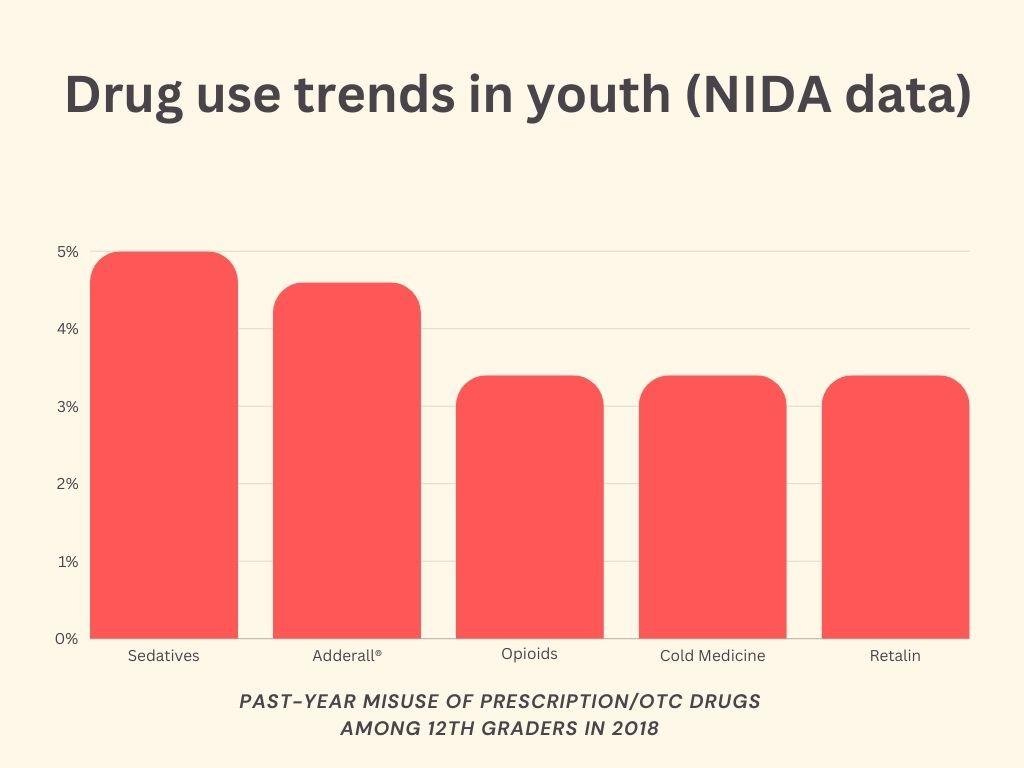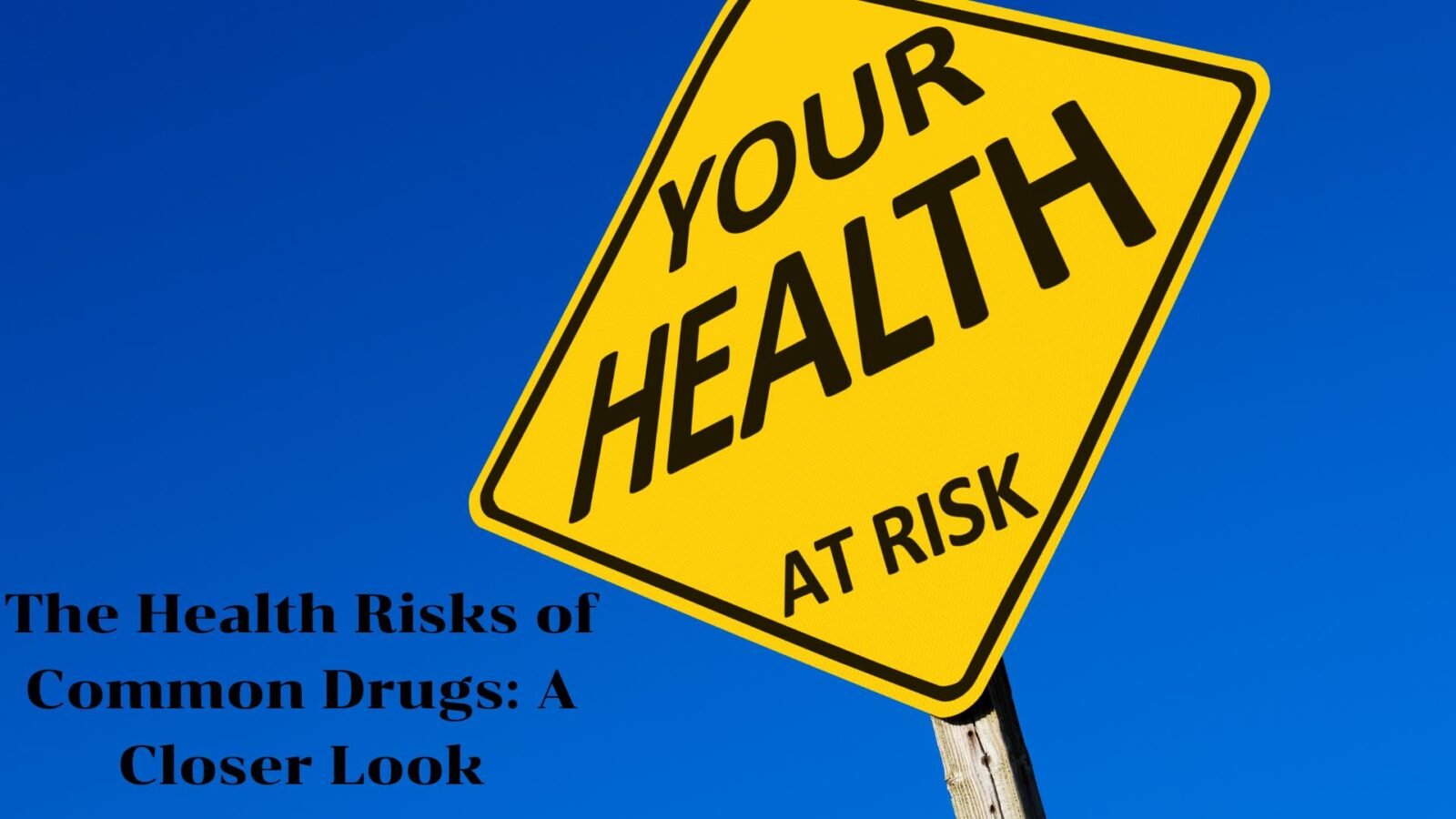Drug use is widespread in modern society, with many turning to substances like alcohol, tobacco, marijuana, opioids, and stimulants for recreational or self-medicating purposes. However, the health risks associated with both illicit and prescription drug use are severe and wide-ranging. This article takes an in-depth look at the dangers of common drugs on physical health, mental wellbeing, and long-term quality of life.
Cardiovascular and Respiratory Complications of Drug Use
Many commonly used legal and illegal drugs can negatively impact the cardiovascular and respiratory systems. According to recent research, tobacco use is linked to an increased risk of coronary heart disease, stroke, peripheral vascular disease, and chronic obstructive pulmonary disease (COPD).
Marijuana smoke contains many of the same toxins as tobacco and can also lead to cardiovascular issues and lung irritation. Inhalants like nitrous oxide starve the body and brain of oxygen, which can result in heart failure and asphyxiation.
Stimulants like cocaine constrict blood vessels, raising the risk of stroke, heart attack, and lung damage from cracked ribs or collapsed lungs. Even common medications like painkillers carry cardiovascular risks if misused.
The Mental Health Impact of Drugs
Recreational use of drugs significantly impacts mental well-being in addition to physical health complications and are most addictive type of drug. Marijuana use is associated with impaired memory, attention, decision-making, and problem-solving skills. Hallucinogens like LSD and psilocybin mushrooms can trigger ongoing perceptual changes and dissociative states.
Cocaine, methamphetamine, and other stimulants often induce paranoia, agitation, aggression, psychosis, and self-harm tendencies during withdrawal, as well as crashes after use. Opioid abuse can also result in side effects such as depression and anxiety disorders. Individuals with mental health conditions face a higher risk of drug use disorders, and vice versa.
The mental health toll of recreational drug use presents immense challenges on the recovery journey. Side effects like depression, anxiety, and psychosis often linger, compromising quality of life. Integrative therapies like mindfulness, nutrition, exercise, and counseling help repair this damage. Emerging research also indicates red light therapy on stomach and abdominal regions may reduce inflammation, heal GI lining permeability, and balance gut bacteria disrupted by drug use.
Infectious Diseases and Drug Use
Sharing needles and other drug paraphernalia facilitates the spread of infectious diseases like HIV/AIDS, hepatitis B and C, and sepsis. Rates of these diseases are much higher among intravenous drug users. Unprotected sex under the influence also increases disease transmission risks.
Education on sanitary injection practices, access to clean needles, safe sex, and testing/treatment for infections are key to combating contagious diseases spread through drug use.
Addiction and Dependence
Regular recreational use of addictive drugs such as opioids, cocaine, tobacco, and alcohol can lead to substance abuse disorders and dependence. Genetics, early drug exposure, trauma, and mental illness are risk factors, but anyone can become addicted with persistent use.
Withdrawal symptoms, failed sobriety attempts, tolerance increases, obsession over use, and negative impacts on work, relationships, and health are all signs of addiction. Support groups, counseling, medication-assisted treatment, and inpatient/outpatient programs can help treat dependency. Early detection of the problem improves outcomes.
Dangers of Drugged Driving
Driving under the influence of recreational or prescription drugs impairs motor skills, reaction time, coordination, perception, and judgment – increasing accident risks [15]. Marijuana, opioids, stimulants, and sedatives all contribute to thousands of drugged driving crashes annually.
Although strict legal consequences, public awareness campaigns, and rideshare services help curb incidents, further research on reliable roadside impairment tests is needed. The simplest way to stay safe is to avoid drug use before driving.
Long-Term Health Consequences
While the immediate effects of drugs pose many dangers, their cumulative long-term health impacts are equally worrying. Long-term alcohol abuse is linked to liver disease, hypertension, strokes, heart disease, cancer, and neurological damage.
Tobacco causes cancers, lung disease, vascular disease, and vision loss over time. Marijuana may impair thinking skills even after cessation of use. IV drug use leads to collapsed veins, infections, scarring, and transmission of lifelong diseases.
Lifelong sobriety becomes the healthiest option due to the combination of addiction and cumulative effects following the development of any substance use disorder.

Frequently Asked Questions
What are the most dangerous health risks of common drug use?
The most severe risks are addiction, infectious diseases like HIV and hepatitis, overdose, cardiovascular effects, and mental health problems like psychosis. Long-term impacts like cancer and organ damage are also highly dangerous.
How can the health risks of drugs be mitigated?
Avoiding drug use altogether is safest, but following dosage guidelines, not sharing needles, practicing safe sex, and never driving impaired helps reduce risks if use does occur. Getting addiction treatment quickly also mitigates health consequences.
The health risks surrounding recreational and prescription drug use are multifaceted but well understood. While occasional use may seem harmless to some, understanding these dangers can help make informed usage decisions and get help when needed. If drug use is impacting your physical or mental health, support systems are available to get your life back on track.
Conclusion:
In the complex landscape of drug-related health risks, it’s crucial to recognize that the journey doesn’t end with awareness, it leads to hope and recovery. While the perils of addiction and long-term consequences loom large, the power to reclaim one’s life is equally immense.
Overcoming addiction is a transformative journey that goes beyond mere cessation of substance use. It entails personal growth, self-discovery, and the cultivation of coping mechanisms that foster a life of well-being and fulfillment.
Regardless of the past, each day offers the promise of a new beginning. Seeking help, making informed choices, and staying committed to recovery pave the way for a future filled with hope, resilience, and the potential for a life unburdened by the shackles of addiction.
















